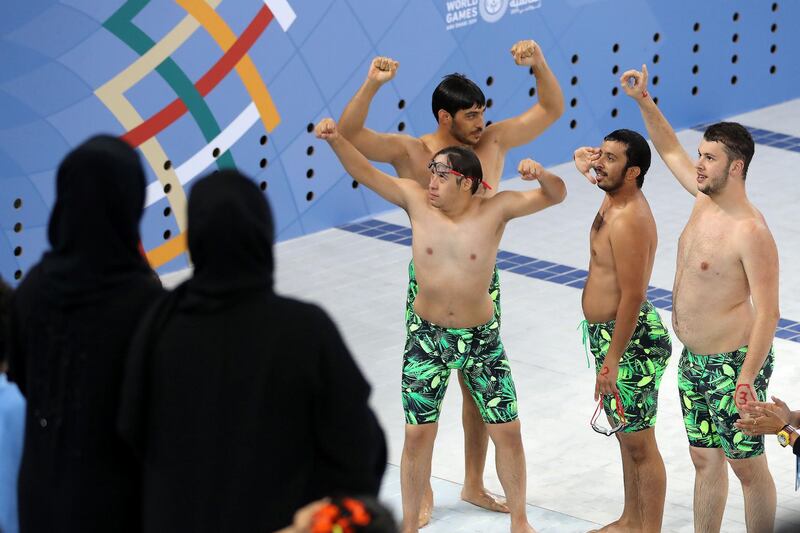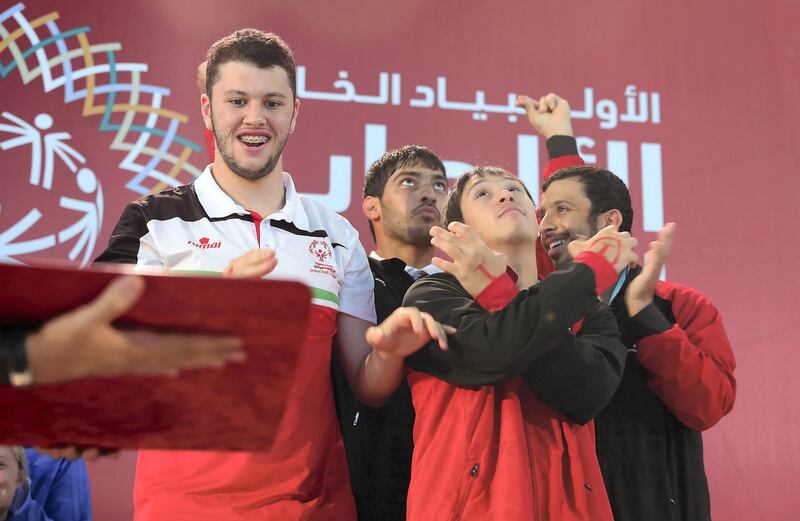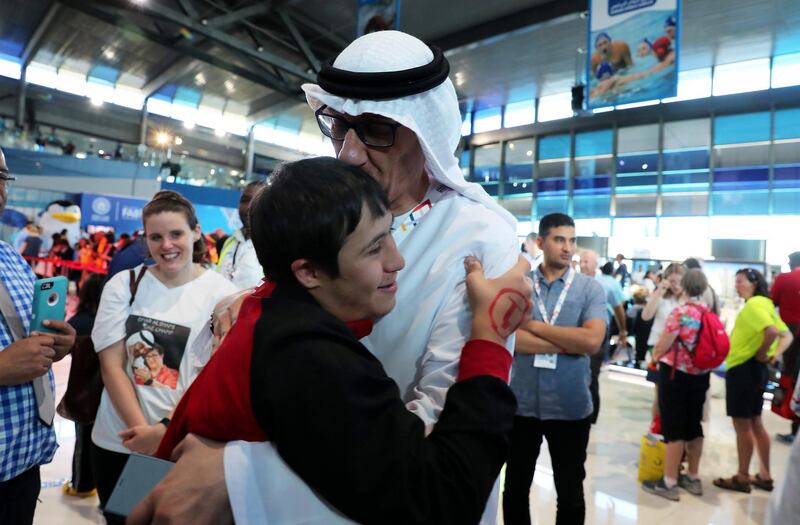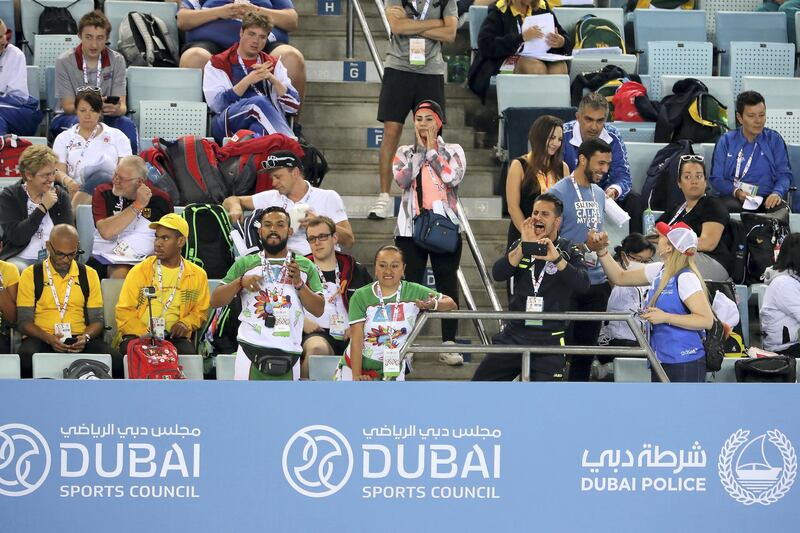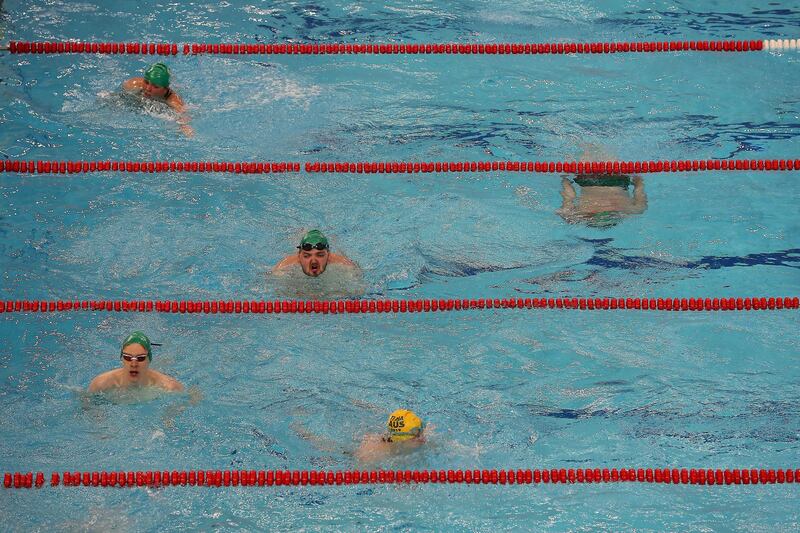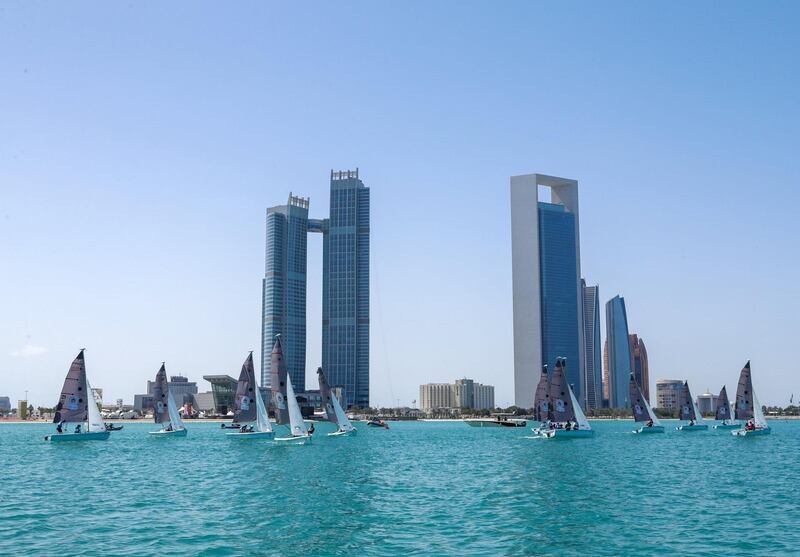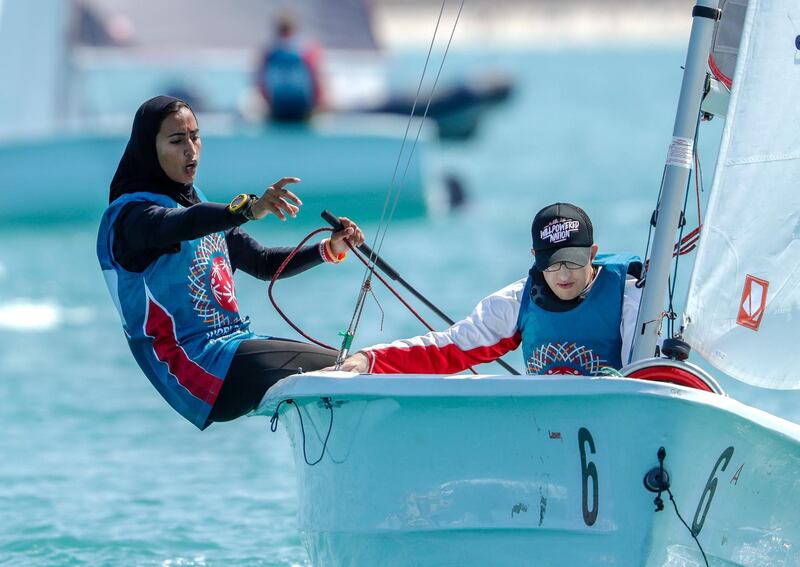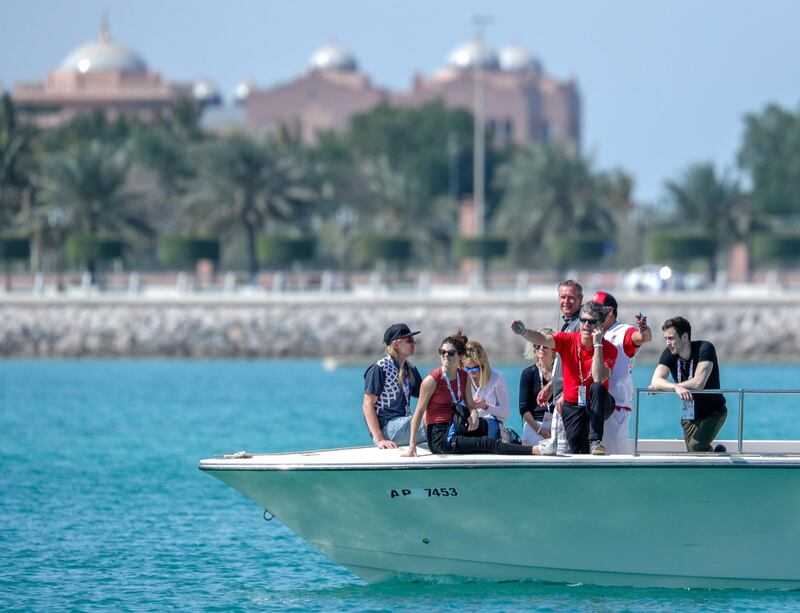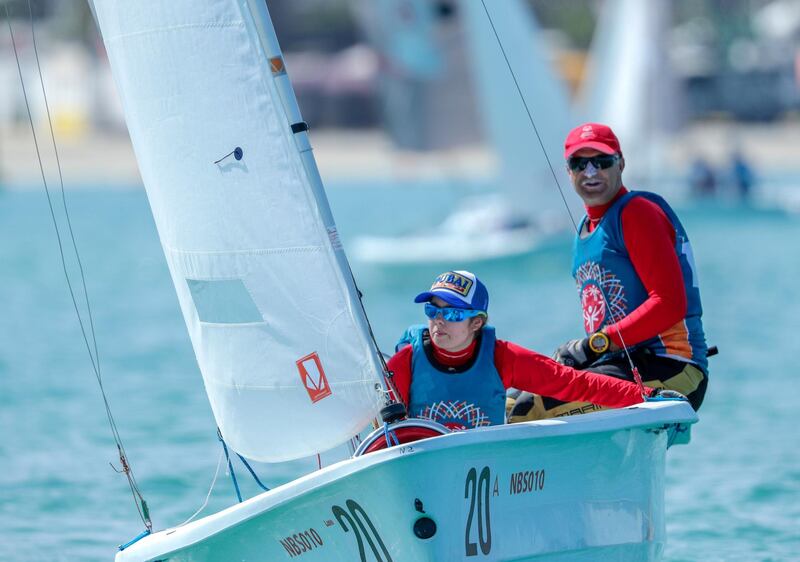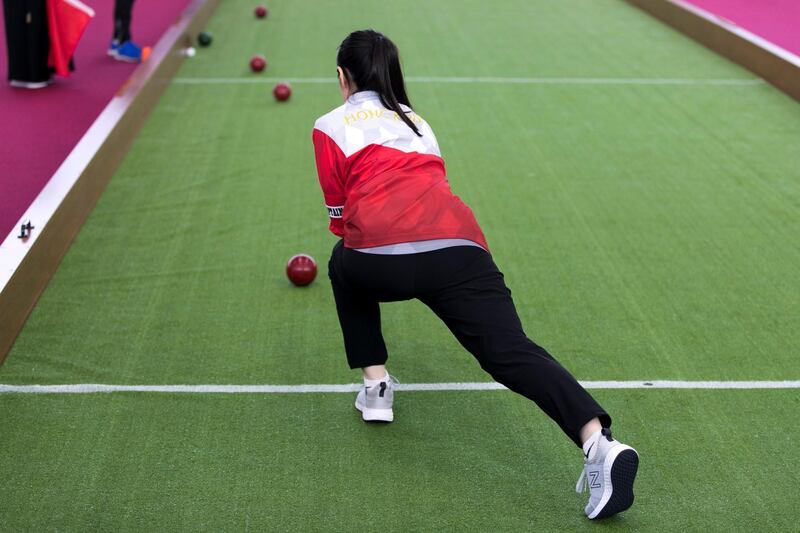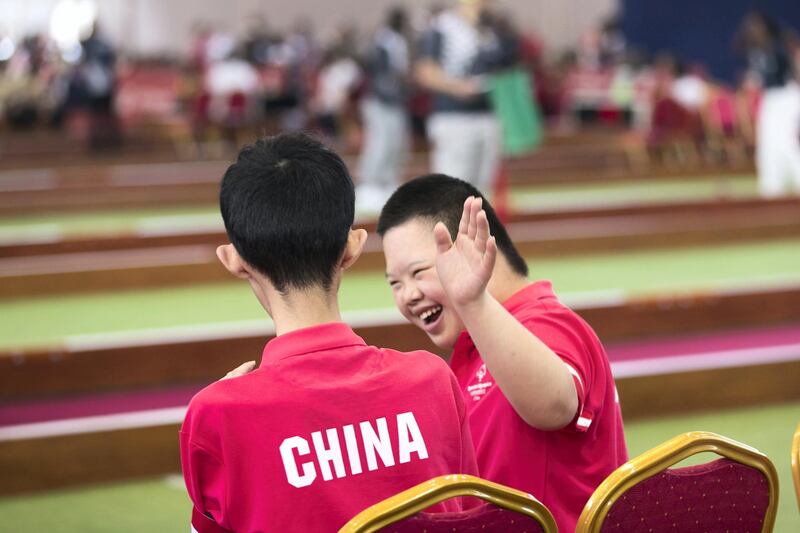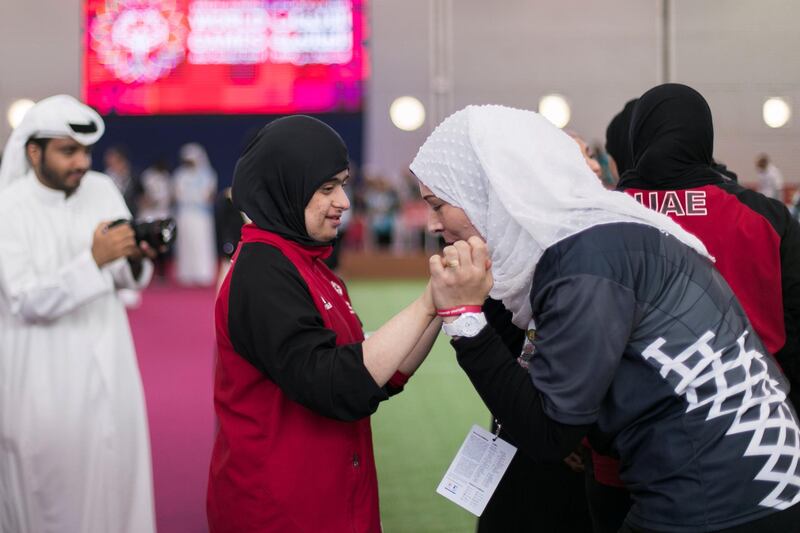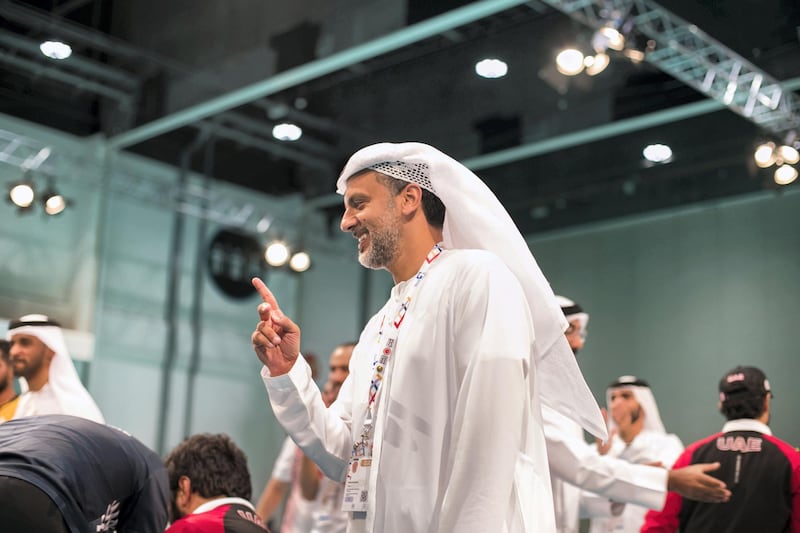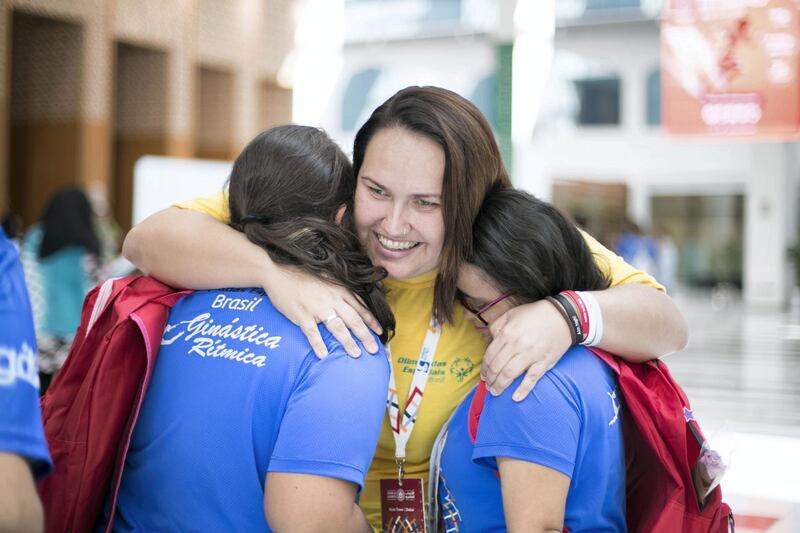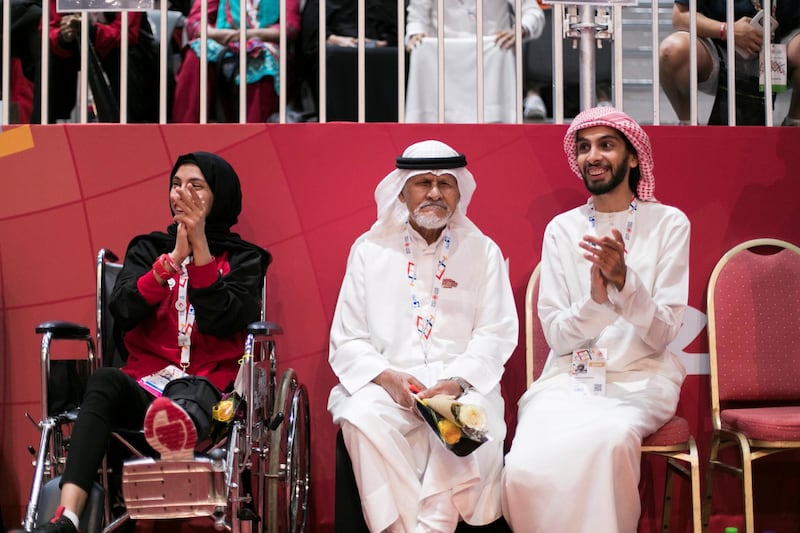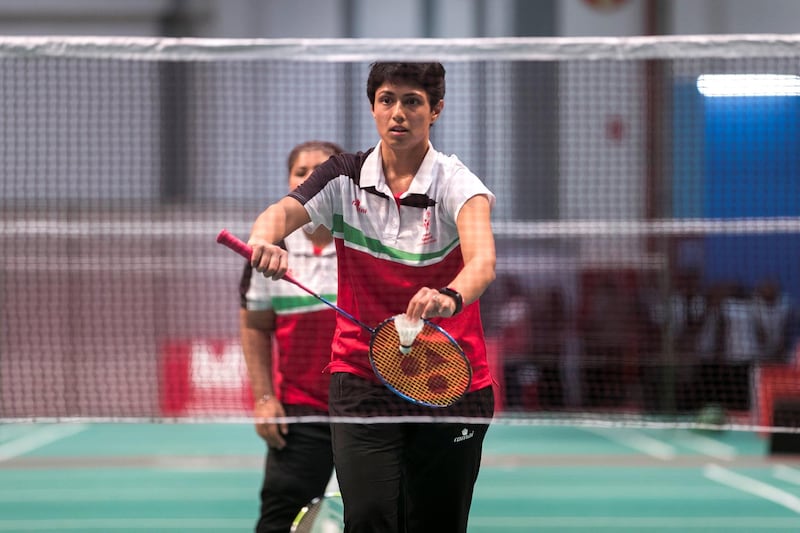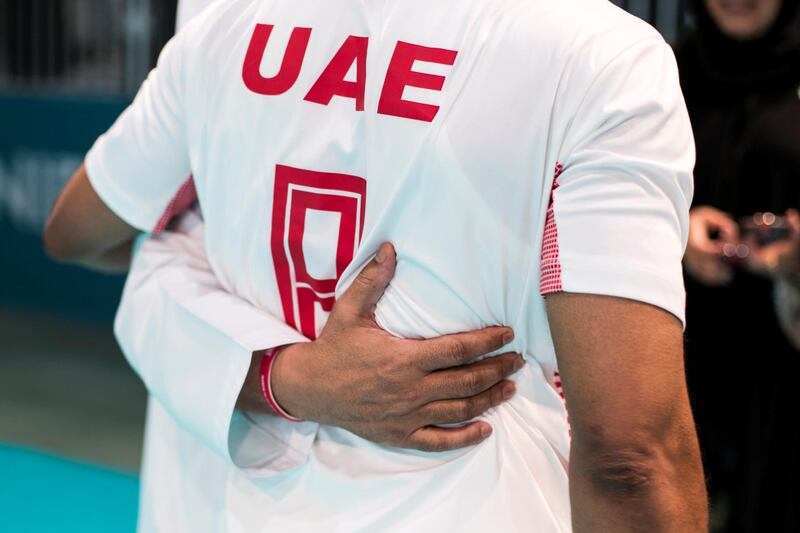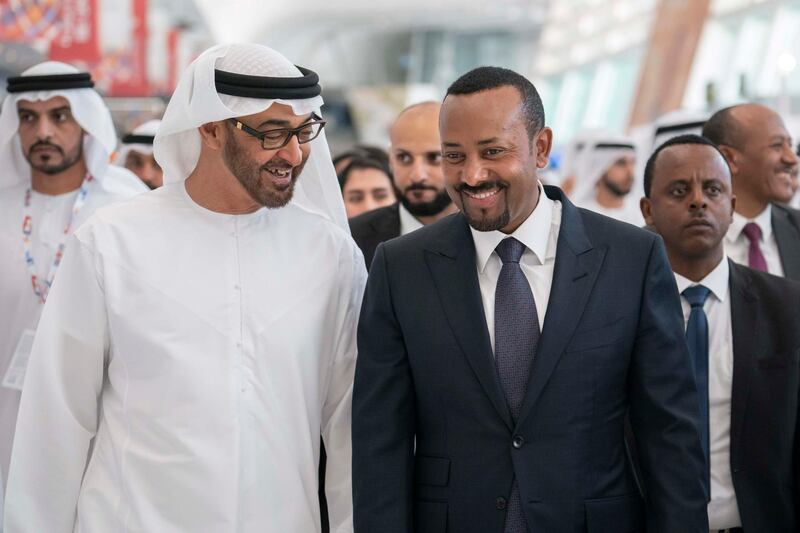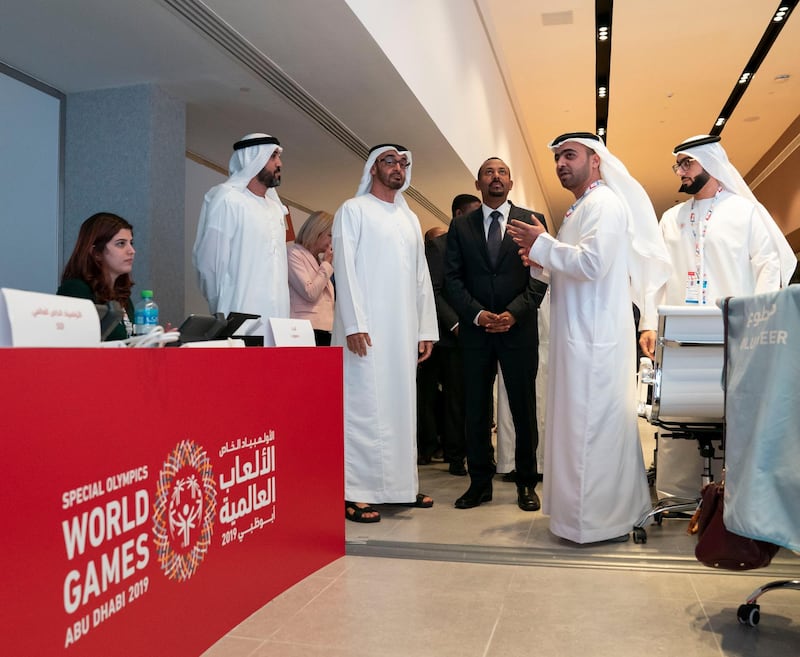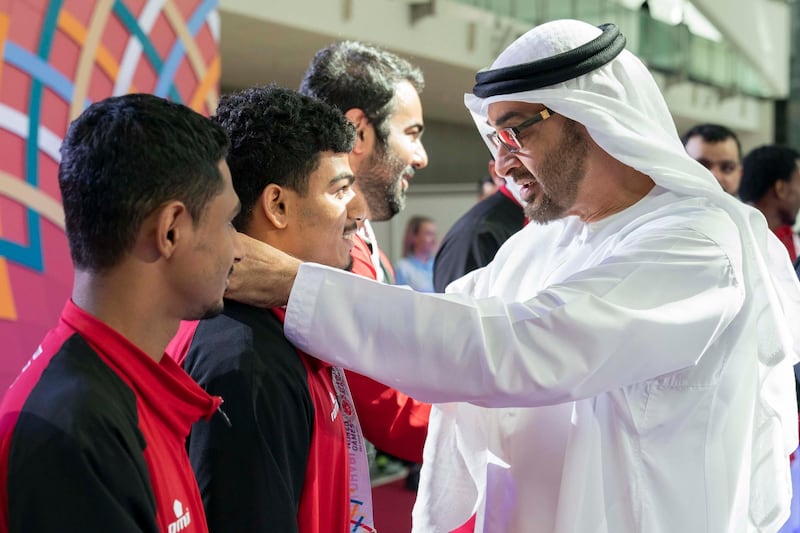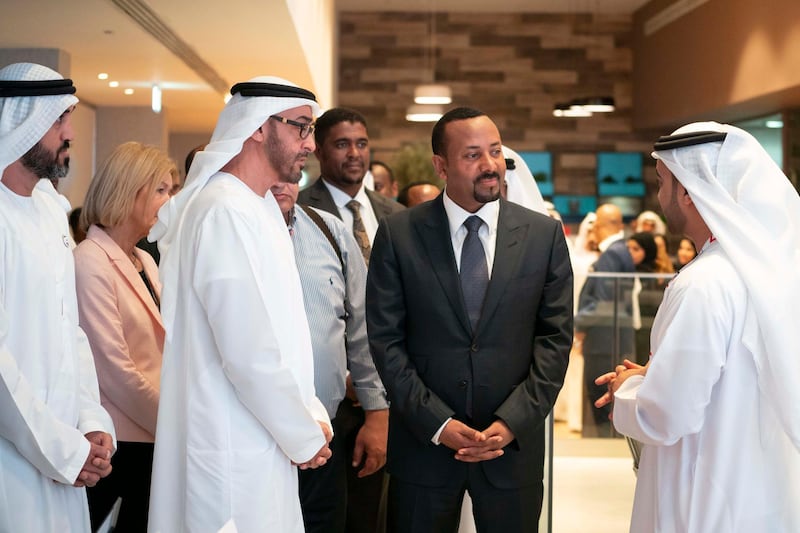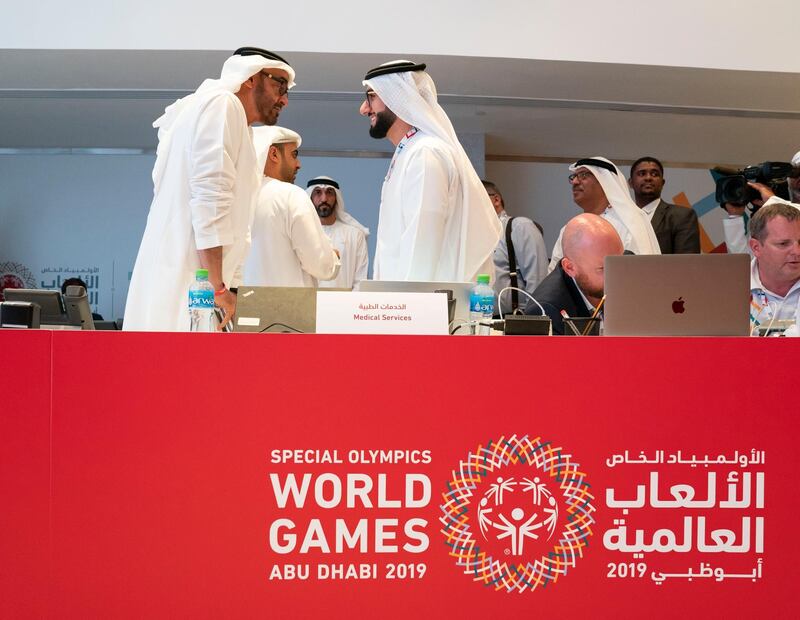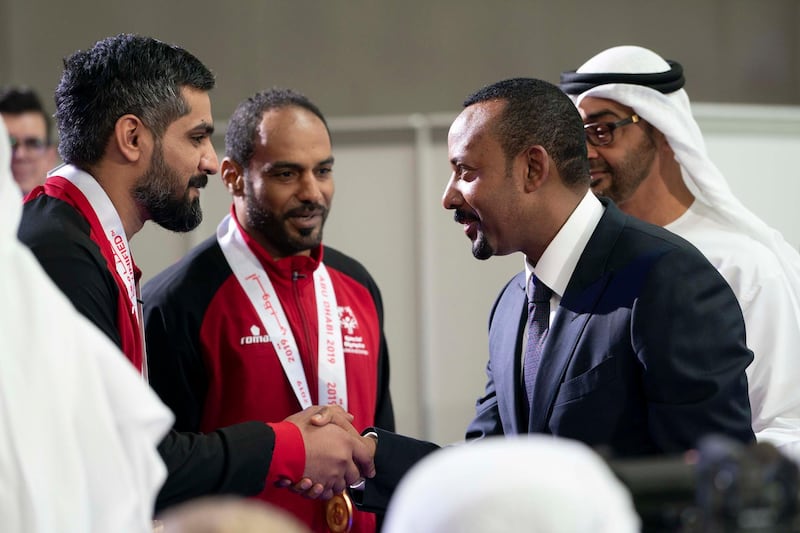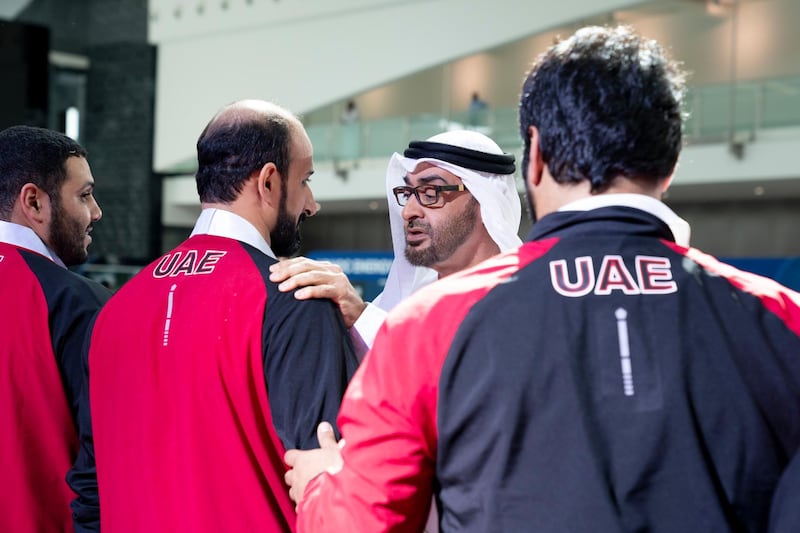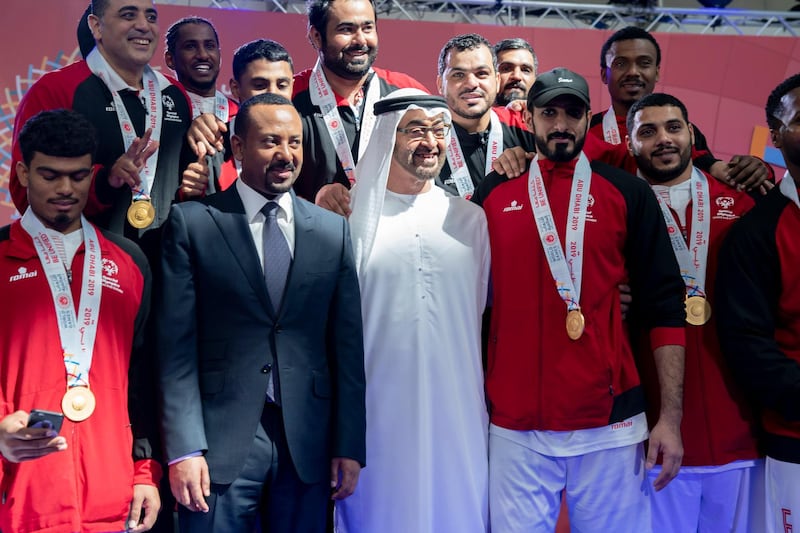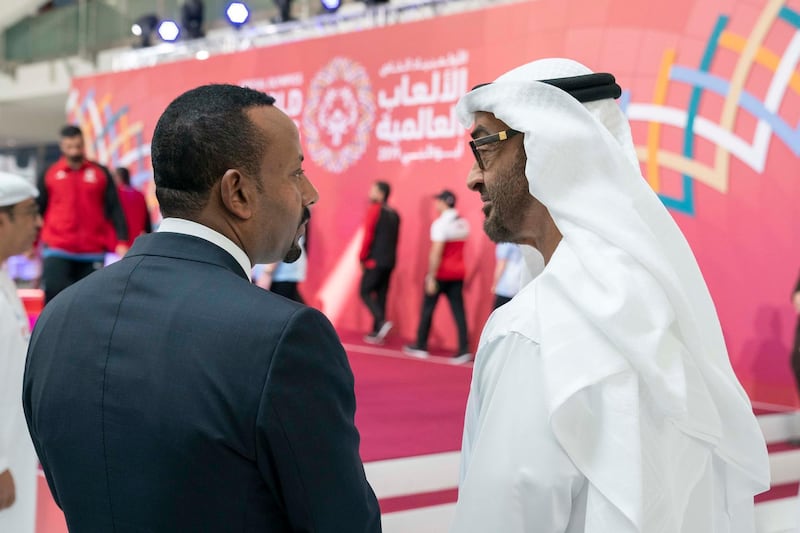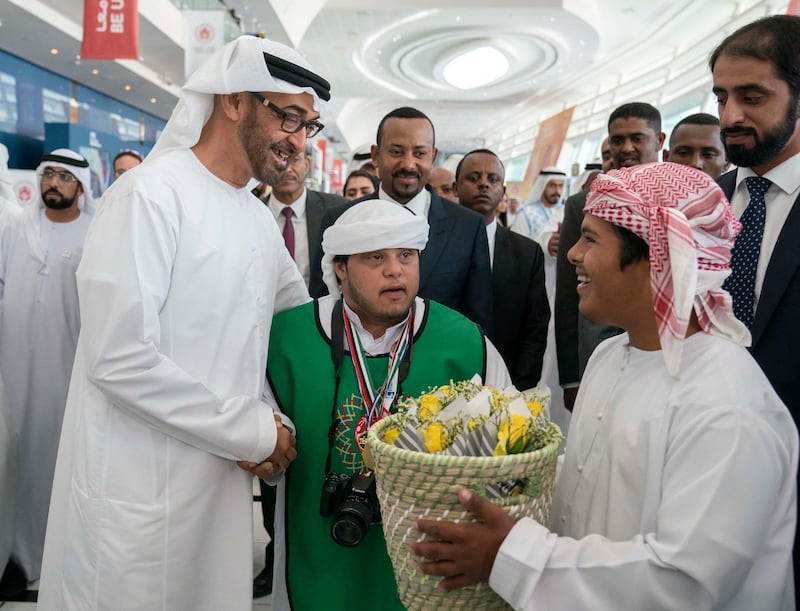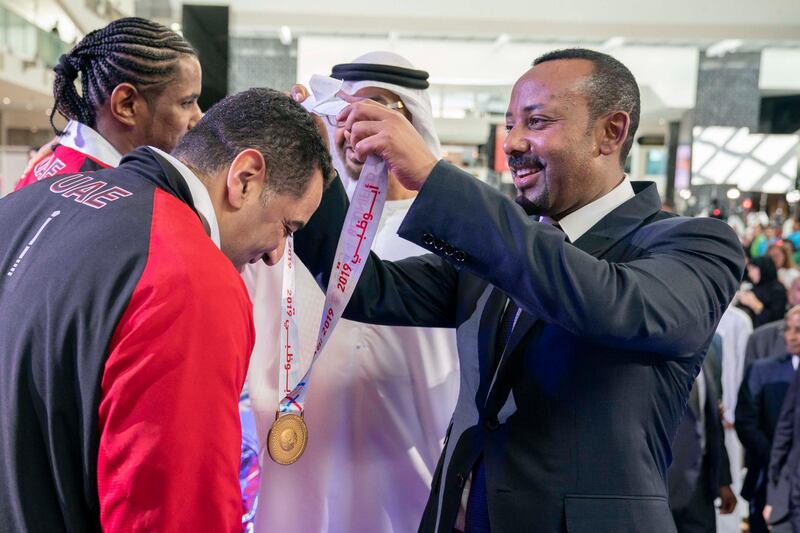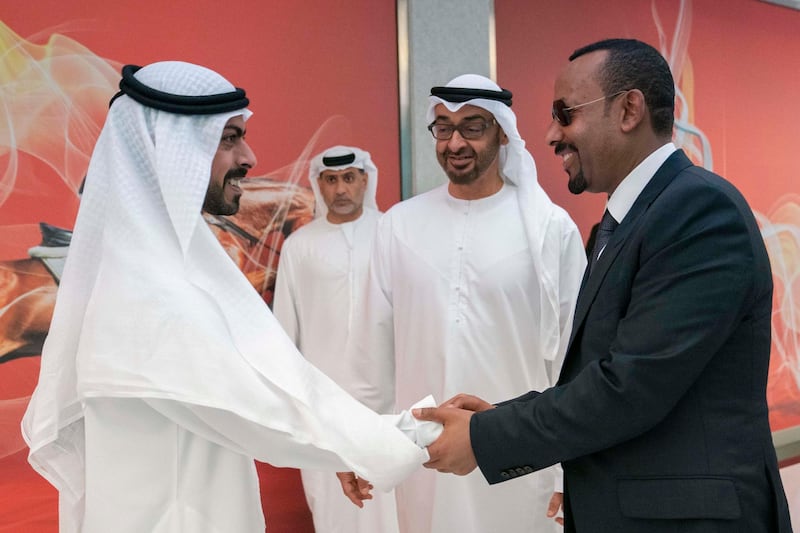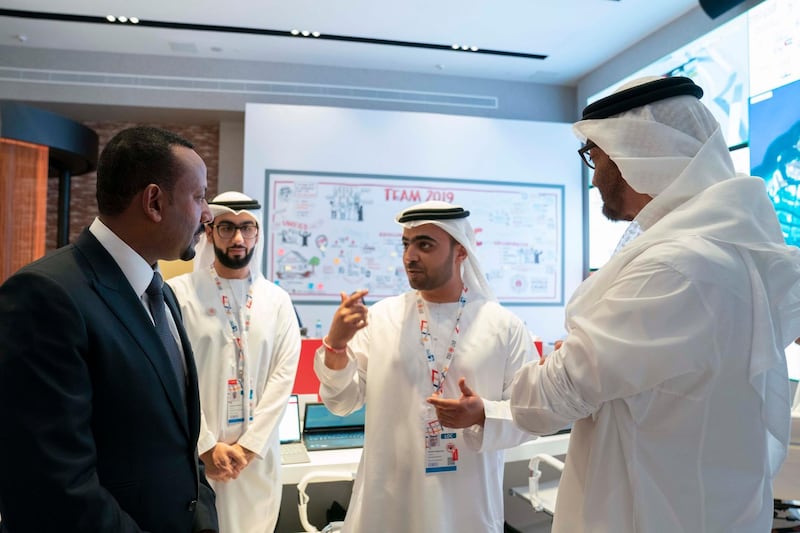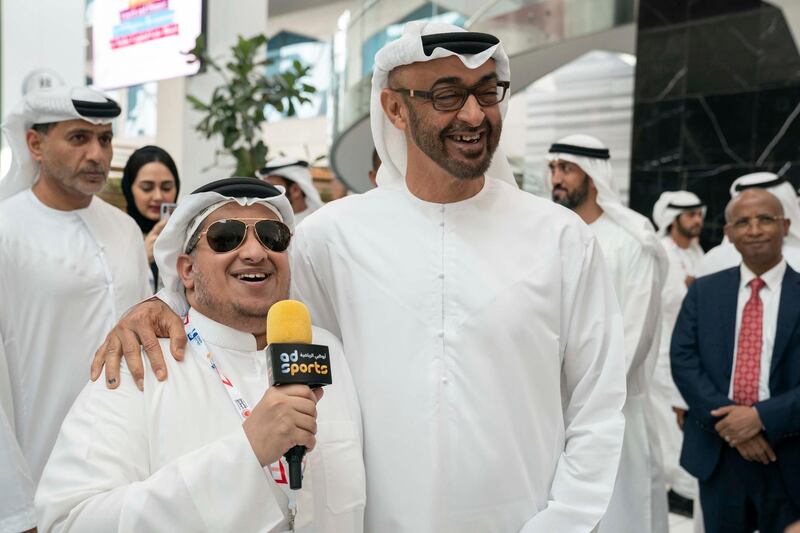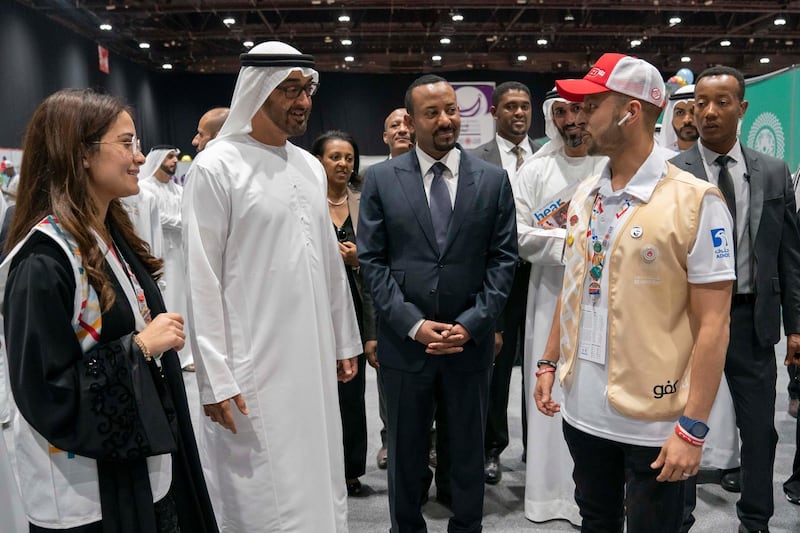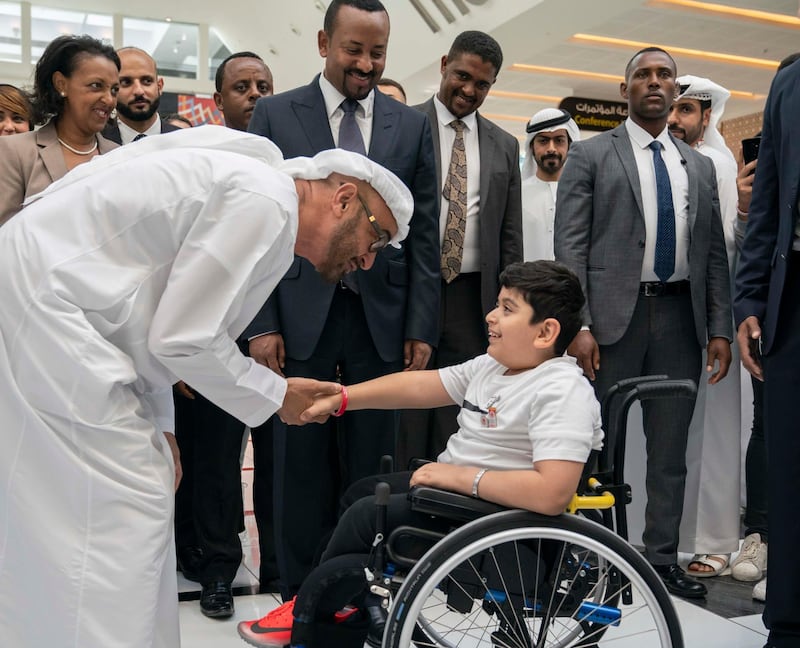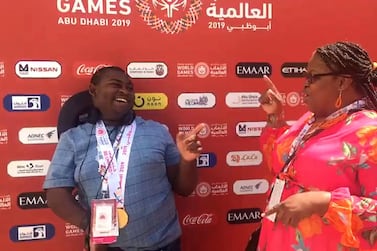After a week of high energy at the largest Special Olympics World Games venue in Abu Dhabi, the atmosphere on Wednesday was mixed and sometimes even subdued.
As the final matches were played and the last medals handed out, athletes said that, although they were excited to go home, they would have liked to stay longer.
Spirits were lifted even higher by a royal visit from Sheikh Mohamed bin Zayed, Crown Prince of Abu Dhabi and Deputy Supreme Commander of the Armed Forces, and Abiy Ahmed, the Prime Minister of Ethiopia.
The pair awarded medals to some of the athletes before checking in on some of the matches at the Abu Dhabi National Exhibition Centre.
“I was touched by the enthusiasm and joy of the athletes at the Special Olympics Abu Dhabi 2019,” Sheikh Mohamed said on Twitter.
“It’s exhilarating for me and my dear friend, the Ethiopian Prime Minister, to meet people of determination. We’re so proud of them and their families.”
Some of the athletes were hit a little harder at the end of the Games after realising their time to bring home gold had run out.
Sitting cross-legged on the floor and with tears streaming down his face, Mohammad Al Hajji, a Saudi handball athlete representing Kuwait, felt as though he had not done enough for his team.
“I’ve let Kuwait down,” said Al Hajji, 34. His team earned silver yesterday, losing to Oman. "I wanted to get gold."
The Bangladeshi volleyball team were also left disappointed after a referee’s decision meant they came third, earning a bronze medal.
“We were two points ahead of India but they won in the end because the referee gave our player a red card and we were disqualified,” said coach Jahangir Alam. “Our players are not happy.”
Alam's team had only 45 days to train for the Games.
“They did superbly for the short time they had and in spite of the lack of facilities we have in Bangladesh. Our players train in the mud and open fields,” said Special Olympics volunteer Mohamed Rahman.
Bangladesh’s Special Olympics team also took home a silver medal in handball and came fourth in basketball.
Ganka Ivanovo, 45, who plays badminton for Bulgaria, was disappointed to be going home with a silver medal, rather than gold.
“But it is only for a moment. She will be happy at the awards ceremony. They played extremely well,” said her coach, Aleksandar Dimitrov.
“The Special Olympics has been a wonderful experience.”
The encouraging and inclusive atmosphere prompted one of his badminton players, Ivan Ivanov, to speak for the first time.
“He rarely speaks and here at the Games, for the first time, he began communicating,” Dimitrov said.
“These Games are very special to them. It makes them feel important and special. All the attention is on them, which is how it should be.”
The host country had a golden day on Wednesday, beginning on the volleyball court.
“Did we win? Did we win?” asked Sheikh Nahyan bin Diab, 9, and his brother Sheikh Mohammed, 10, who had been wandering around Adnec watching some of the matches.
“Of course we won,” members of the UAE’s volleyball team told them.
“We won because of the athletes with determination,” said Rashed Hassan, an athlete without a disability who played in the unified sports team competition that pairs people with and without intellectual disabilities to promote inclusion.
Hassan, 36, has been playing volleyball for 27 years and won many championships.
“I’ve never played with athletes of determination and I’ve never played such an exciting game," he said. "The way they played is like nothing I’ve ever seen or expected.”
At the Hamdan Sports Complex in Dubai, the crowds were especially vocal in cheering on the athletes as the UAE’s swimming team clinched a bronze medal in the 4x50m relay.
Emiratis Abdullah Al Tajer, Khalid Al Barguthi, Omer Al Shamsi and Awadh Al Ketbi took third place behind Estonia and Colombia in a close contest.
The race brought the UAE swimming team's tally to eight gold, four silver and four bronze.
For Salha Al Risi, it was the perfect Mother’s Day gift. Her son Abdullah won gold in the 50m breaststroke and her younger son Mohammed won two gold medals in the equestrian event.
“The three golds my sons have given me is the best gift for any mother. They have got me four medals and I am so proud,” Ms Al Risi said.
“You have to support them all the time, not just before the competition. It has been hard work but we are with them always and during training to show that we are behind them.”
Family and friends cheered on the UAE swimmers as they took on strong teams from China, Trinidad and Tobago and the US.
Chanting “UAE, UAE”, the crowds later gathered around the podium to take photographs as the swimmers raised their medals and waved.
Jumana Al Barguthi, mother of Khalid, who also won gold in the 50m freestyle and 25m backstroke, said the team had done the country proud in a close competition.
“The relay is one of the most difficult races because the whole team has to be in sync," Ms Al Barguthi said.
"They showed people that it doesn’t mean that if they are special needs they cannot achieve what their heart desires and they have won medals for the country."
Al Shamsi also took gold in the 25m breaststroke and his mother, Rula, echoed the need for continuous family support for children with intellectual disabilities.
“Our work does not start or end here. Our support has been steady all these years,” Ms Al Shamsi said.
